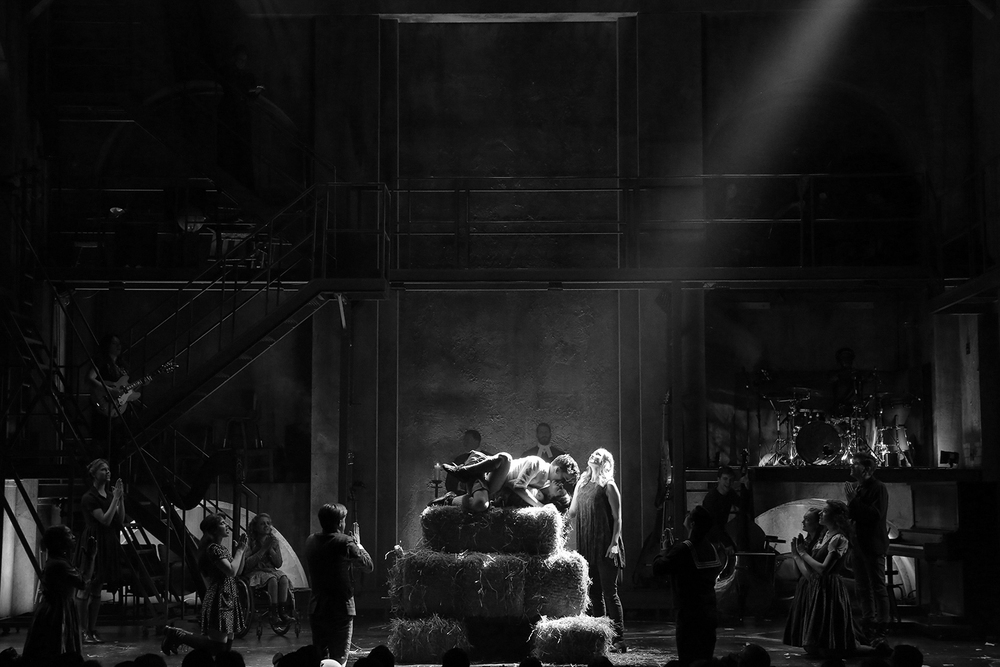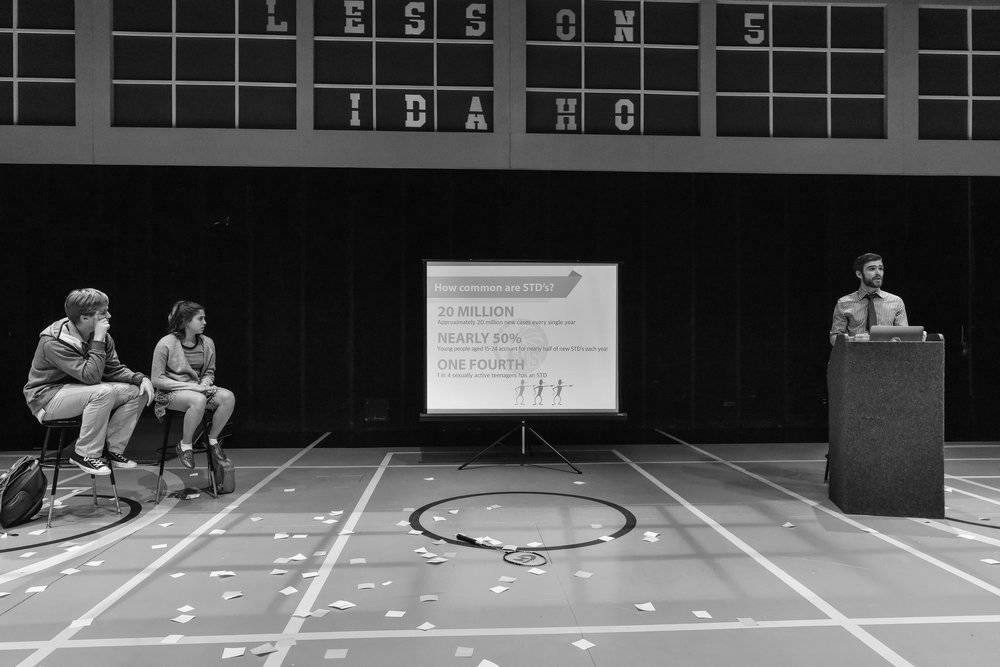Consent in the World of Spring Awakening

As a young theatre fan actively engaged in social media, I've seen my fair share of battles. Should Christine have gone with Raoul or stayed with Erik? What Hogwarts house does Anatole Kuragin belong in? Fun Home was the first lead lesbian on Broadway, but Something Rotten! was the only show that was original, so which deserved the Tony? I've learned the best thing to do Tony nomination day and Tony award day is to turn off your phone and hunker down and wait, it's simply not safe to wander onto Twitter or Instagram or Tumblr.
There is one argument, however, that I never get tired of, and I find in the current political climate, it's risen to the surface again, which is in the act one closer, I Believe, what's going on? Is it sexual assualt? Is it rape? Did Wendla consent? Could Wendla consent?
I'll get my opinion out of the way on this one, so you don't have to read on to the end. Yes, yes, no, and no. Great, now that that's out of the way, let's look at the arguments. The most common argument I hear on the end of it not being rape, is that while Wendla didn't necessarily say yes, she also didn't say no. Now, the original play takes out all the confusion in this scene by having Wendla say no repeatedly. However, the adaptors of the musical decided to turn a cautionary tale into a love story, and romanticize a sex scene between a fifteen year old and a fourteen year old, something that should really cause all of us to take a pause.
Now, I don't think that Melchior is the only problem. Yes, Wendla didn't consent, but that was because she couldn't consent. She didn't know what he was iniating, nor what was on the table, but it's not Melchior's fault that she didn't know. In a way, I understand. I grew up in a pretty religious family, and while I know enough to know how pregnancies work, I still have questions about the intricacies of sex, and having had a very lacking sex ed provided at school, they just might remain mysteries to me forever.
Her mother should have told her. And did Melchior's books have a forward about the importance of consent? Did they include passages on the woman, beyond her vagina? Did he know he was hurting her? That is a reoccuring theme in the show- the word they use to describe relationships, both the main one between Melchior and Wendla and the subplot between Ernst and Hanschen. Bruise. "I'm gonna bruise you." "I'm gonna be your bruise." The relationships in this show aren't just toxic, they seem to revel in it.
And yet, many productions don't seem to want to go that way with it. They don't want to make it nitty and gritty, they want to keep the star crossed lovers aspect, even though the problem was never the stars, it was always Melchior's inability to keep it in his pants and Wendla's mother's inability to accept that she failed her daughter. After all, that's the better story. It gives you a couple to root for. And isn't that what we want when we go to the theatre? It would certainly explain why Carousel is such a commerical success though it is my belief, and the belief of many others, that is a complete failure of an adapation.
The 2016 Broadway revival of Spring Awakening came the closest I've seen to actual accountability, particularly with Katie Boeck acting like Wendla's older sister, and her particular actions towards the end of act one and throughout act two, from her hiding away from her during I Believe with the troubled posture of someone who knows better, to holding onto her as she's getting physically pulled away to get the abortion.
There are a million different takes on Spring Awakening, which like all shows, has it's problems, but also it's gems. However, in this day and age we need to be responsible with what we consume. Are we taking Spring Awakening in the right direction, with the rest of the women's movement, or not?
(Photo credit Joan Marcus)




